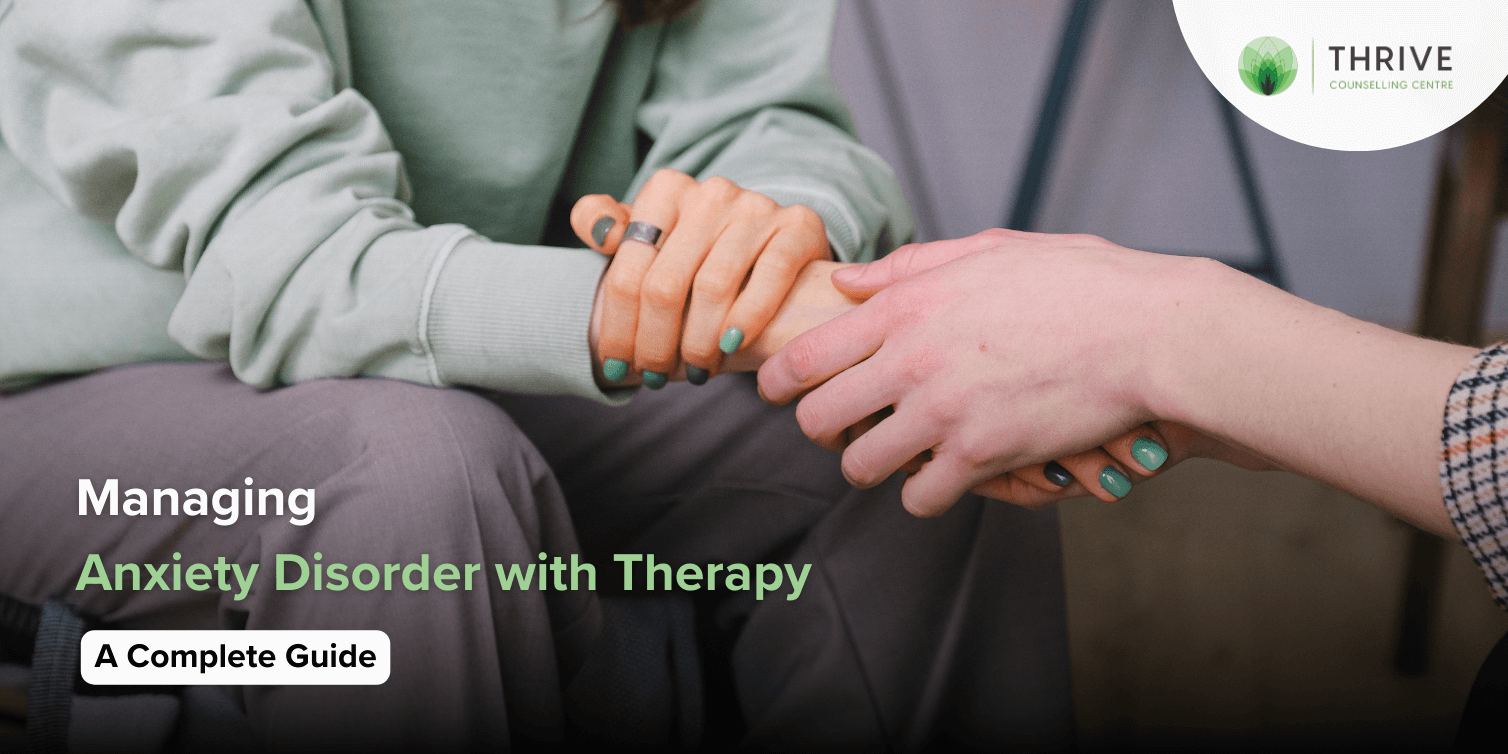Research-driven counselling for anxiety with empathetic guidance
Research-driven counselling for anxiety with empathetic guidance
Blog Article
Effective Methods in Coaching for Anxiety Disorder: A Path to Recovery
When facing anxiety conditions, you may feel overwhelmed and not sure of where to transform. Efficient coaching approaches can lead the way for recovery, offering you with the tools to navigate your challenges. From cognitive-behavioral strategies to mindfulness techniques, each strategy supplies one-of-a-kind advantages. Comprehending how these approaches interact can make a considerable difference in your trip. What are the vital parts that will guide you in the direction of lasting modification?
Understanding Anxiousness Conditions: A Detailed Overview
It's crucial to recognize that they include an array of conditions characterized by extreme fear or worry when you assume regarding anxiety problems. These disorders can show up in various means, including generalised anxiety problem, panic attack, and social anxiety problem. You might experience symptoms like fast heart beat, sweating, or trouble concentrating. It's usual to feel overloaded, and these feelings can interrupt day-to-day life.Understanding the source of stress and anxiety is important. They can come from genes, brain chemistry, or environmental variables. You may discover that particular situations activate your stress and anxiety, making it essential to recognize these triggers.
Cognitive Behavior Modification (CBT): Improving Idea Patterns

Mindfulness and Leisure Techniques: Growing Present-Moment Recognition
Mindfulness and relaxation methods assist you cultivate present-moment recognition, allowing you to handle stress and anxiety better. By focusing on the below and currently, you can damage devoid of the cycle of fear and rumination that typically gas stress and anxiety. Beginning by practicing deep breathing exercises. Breathe in slowly through your nose, hold for a moment, then breathe out via your mouth. This easy strategy can calm your mind and body.Engage in mindfulness reflection by alloting a few mins daily to observe your thoughts without judgment. Take note of your breath, experiences, and the noises around you. You could also discover worth in dynamic muscle relaxation, where you strained and loosen up each muscle group, promoting physical and psychological ease.Incorporating these techniques into your daily routine can produce a better feeling of control, reduce anxiety symptoms, and boost your overall well-being. Keep in mind, consistency is crucial to experiencing the advantages.
Direct Exposure Treatment: Encountering Anxieties Progressively
Direct exposure treatment aids you encounter your fears gradually, allowing you to build confidence over time. By utilizing gradual exposure techniques, you can slowly confront what makes you distressed while creating reliable coping devices. This procedure not just minimizes your concern however likewise empowers you to manage anxiety better.
Gradual Exposure Strategies
You can effectively reduce anxiety and reclaim control over your life when you challenge your concerns gradually. Gradual direct exposure strategies include facing your fears tip by action, starting with much less frightening scenarios. You could start by picturing the feared scenario, after that advance to seeing images or videos connected to it. Ultimately, you can practice confronting the concern in genuine life, but just when you feel all set. This technique permits you to develop self-confidence as you relocate through each phase. Keep in mind to rate yourself; hurrying can boost stress and anxiety. Commemorate little victories in the process, as each advance encourages you. By continually applying these strategies, you'll discover that your fears start to shed their hold on your mind.
Building Coping Devices
Building reliable coping mechanisms is essential for handling anxiety, specifically as you face your anxieties progressively via direct exposure therapy. Begin by determining your particular anxieties and breaking them down into workable actions. This way, you can slowly challenge each fear without ending up being overloaded. As an example, if you have problem with social circumstances, begin by exercising tiny interactions, like greeting a neighbor.Alongside progressive exposure, integrate leisure strategies such as deep breathing or mindfulness to relax your mind before facing triggers. Keep a journal to track your development and celebrate little triumphes. Border on your own with encouraging buddies or a therapist who can guide you. Remember, it's a journey-- patience and persistence will reinforce your coping devices, leading to greater strength versus anxiousness.
Helpful Counseling: Building Trust and Rapport
To properly sustain somebody with stress and anxiety, establishing trust and rapport is essential from the really initial session. You'll want to create a secure room where they feel comfortable sharing their ideas and feelings without judgment. Energetic listening is vital; show genuine interest in what they share. Recognize their feelings and validate their experiences. It is very important to be compassionate, as this helps construct a link and encourages openness.Be regular in your technique and maintain discretion to additional strengthen that trust fund. Use open body movement and make eye get in touch with to convey your listening. Keep in mind, your perseverance goes a long way; structure rapport requires time, and it's important to respect their speed. By fostering this encouraging environment, you'll encourage them to engage even more fully in the healing process, making it less complicated for them to explore their anxiousness and pursue recuperation.
Group Treatment: Shared Experiences and Collective Recovery
Group treatment can be a powerful device for those dealing with stress and anxiety disorders, as it enables people to share their experiences and discover relief in the understanding of others. In this supportive atmosphere, you can share your feelings without anxiety of judgment. Hearing others' stories can stabilize your own experiences, making you feel much less alone in your struggle.Participating in team therapy assists you develop coping strategies with shared expertise and insights. As you pay attention to others, you might discover brand-new means to tackle your anxiety that you hadn't taken into consideration before.Moreover, the collective recovery that takes place in these sessions can foster a sense of neighborhood, advising you that you're not facing your difficulties alone.Building connections with others that understand your struggle can improve your self-confidence and motivation to challenge your stress and anxiety. Group treatment develops a space website where development and recovery become a common journey, equipping you to take steps towards healing.
Incorporating Way Of Living Adjustments: Holistic Techniques to Anxiousness Monitoring
While treatment gives vital support, integrating way of life modifications can considerably improve your capability to handle stress and anxiety. Begin by integrating routine exercise right into your regimen. Exercise releases endorphins, which can elevate your mood and reduce stress. Next off, pay attention to your diet regimen. Eating a well balanced diet plan rich in fruits, vegetables, and whole grains can positively influence your psychological health. Do not fail to remember regarding sleep-- go for 7-9 hours per night, as high quality remainder is crucial for emotional regulation.Mindfulness practices, such as reflection or yoga exercise, can likewise help you remain based and present. Consider reserving time every day to practice these strategies. Lastly, limit high levels of caffeine and alcohol usage, as they can worsen anxiety signs and symptoms. By making these alternative changes, you develop a stronger structure for handling anxiety, enhancing the advantages acquired from treatment. Keep in mind, every small action matters on your path to recuperation.
Frequently Asked Concerns
What Are the Typical Physical Symptoms of Anxiousness Problems?
Common physical symptoms of anxiety problems consist of quick heart price, lack of breath, muscle tension, sweating, and headaches. You could additionally experience tiredness, lightheadedness, or stomach issues, which can better complicate your life.
Exactly How Lengthy Does Counseling for Anxiety Normally Take?

Counseling for stress and anxiety commonly takes a couple of weeks to several months, depending on your private requirements and development. counselling for anxiety. You'll discover that normal sessions aid you create dealing approaches and gain insights into your anxiety
Can Anxiety Disorders Be Completely Healed?

What Should I Perform in a Panic Attack?
Throughout an anxiety attack, concentrate on your breathing. Breathe in deeply with your nose, hold for a moment, after that exhale gradually - counselling for anxiety. Ground yourself by calling items around you, and advise yourself it will certainly pass
Exist Medications for Anxiety Problems?
Yes, there are several drugs for stress and anxiety disorders, including antidepressants and benzodiazepines. You must speak with a healthcare expert to locate the best therapy plan customized to your particular needs and scenarios for the very best results. When you assume regarding anxiousness conditions, it's essential to recognize that they incorporate a variety of problems defined by too much worry or fear. These disorders can materialize in numerous ways, including generalised anxiety condition, panic problem, and social anxiety condition. Structure effective coping systems is important for handling anxiety, particularly as you face your worries slowly through direct exposure therapy. Group treatment can be a powerful tool for those dealing with anxiousness conditions, as it permits individuals to share their experiences and discover relief in the understanding of others. As you listen to others, you might find brand-new ways to tackle your stress and anxiety that you had not considered before.Moreover, the collective recovery that takes place in these sessions can foster a sense of neighborhood, reminding you that you're not facing your challenges alone.Building connections with others who understand your struggle can increase your self-confidence and inspiration to face your stress and anxiety.
Report this page